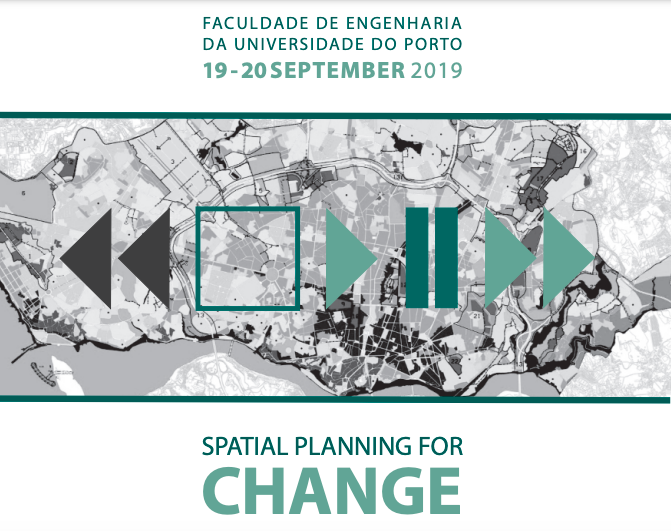
CITTA 12th ANNUAL CONFERENCE ON PLANNING RESEARCH April 2, 2019
CITTA 12th ANNUAL CONFERENCE ON PLANNING RESEARCH
Porto, 19th - 20th September 2019
Spatial Planning for Change
Contemporary cities are facing key challenges of an unprecedented magnitude. The economic system seems to have developed structural weaknesses, as manifested by increasing job precarity, endemic debt and difficulties in maintaining GDP growth. The natural environment is clearly at risk – as demonstrated by global warming and decreasing biodiversity. Growing social inequality is achieving dangerous levels, at the same that migrations at the macro scale are imposing serious geo-political tensions. By addressing these challenges effectively, planning can play a key role in preparing a more prosperous future. The 12th CITTA Conference aims at offering a space for debating how spatial planning can achieve this. First, there will be the opportunity to discuss how social, environmental and economic dynamics can be considered within integrated perspectives. Second, debate will focus on how these three dimensions could be positively influenced by urban form. Third, in addition to the analysis of the built environment, there will be room for discussing mobility flows and the role played by different behavioural, technological and infrastructural approaches in transport planning. Finally, the conference will promote reflection on planning institutions and policies, and on the extent to which the achievement of transformative planning processes is possible.
Tracks
The programme of the Conference on Planning Research comprises plenary sessions and parallel thematic sessions. Parallel thematic sessions will include selected papers, covering the topics presented below.
1. Social, environmental and economic dynamics: Exploring integrated perspectives
Giacomo D'Alisa (Keynote speaker)
The purpose of this track is to explore the substantive content of planning by means of adopting integrative approaches. We welcome participants to reflect on issues as diverse as urban resilience, food security and the city as an ecosystem, climate change and the post-carbon city, tourism and housing dynamics, social exclusion and the pursuit of initiatives based on either pro- or post-growth economic principles.
2. Urban form: Understanding its impact on daily life
Peter Larkham (keynote speaker)
This track proposes debating innovative theories, concepts and methods for description, explanation and prescription of the physical form of cities aiming at impacting positively on the social, economic and environmental dimensions of our daily lives.
3. Accessibility and transports: Changing behaviour, technology and infrastructure
Benjamin Büttner (keynote speaker)
Track 3 aims at identifying the state-of-the-art in this area of planning and welcomes presentations that focus on how to promote behavioural change, technological development, and infrastructural enhancement and management in transport planning. Critical perspectives advocating paradigm shifts in accessibility and transport studies are also welcomed.
4. Transformative planning processes: Rethinking institutions and policies
Ernest Alexander (keynote speaker)
Track 4 aims at discussing the different elements of the planning process. While addressing the importance of plans, planning support systems and modelling, and of their results on society and territory, the track will also focus on how institutions, policies and services of general interest can deliver effective change.




